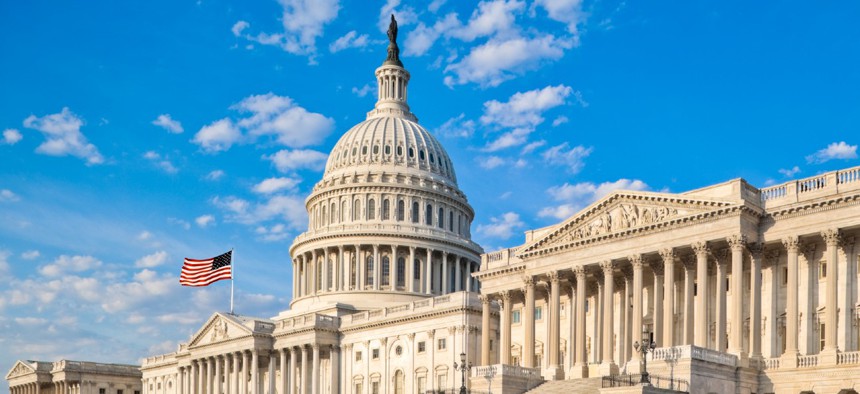
drnadig / iStock.com
House Passes Spending Bills With Big Boosts for Agencies, But Major Roadblocks Remain to Avoid October Shutdown
Senate will need bipartisan spending measures but is far behind the House's timeline.
The House this week approved Democrats’ spending bills for fiscal 2022, advancing measures that would significantly boost funding for federal agencies but have little chance of becoming law in their current form.
On Wednesday, the chamber passed appropriations bills to fund the State Department, the U.S. Agency for International Development and related agencies, as well as the legislative branch, without any Republican backing. A package of measures to fund the departments of Labor, Health and Human Services, Education, Agriculture, Energy, Treasury, Interior, Transportation, Housing and Urban Development, and Veterans Affairs, among other agencies, passed on Thursday. The spending bills largely mirror requests made by the White House to provide an overall 16% funding increase to non-defense agencies.
Republicans have balked at that spending level, arguing more of the new funds should go toward the Pentagon. While Democrats could advance their bills unilaterally in the House, they will need at least 10 Republicans to vote for the spending bills in the Senate. A final bill will also have to resolve disagreements over the use of federal funds for abortion and other policy disputes.
The Senate Appropriations Committee has yet to release or move any of the 12 annual spending bills. An aide to Sen. Patrick Leahy, D-Vt,. the panel’s chairman, said the committee plans to mark up its first three bills—Agriculture, Energy and Water, and Military Construction and Veterans Affairs—next week. With current spending set to expire Sept. 30 and the Senate set to recess in August, advancing bipartisan bills to President Biden’s desk prior to the deadline appears impossible. Some members of Senate leadership have already indicated a stopgap continuing resolution will be necessary to avoid a government shutdown on Oct. 1.
Negotiations among Senate appropriators have in recent weeks focused on supplemental funding for U.S. Capitol Police, the National Guard and other initiatives. Leahy this week struck a bipartisan agreement to provide emergency spending, to which the Senate agreed on Thursday. The chairman and his fellow appropriators will now pivot toward striking deals that can win favor with Republicans without alienating progressive members and House Democrats looking to provide large increases to agencies across government.
Lawmakers must also deal with a looming debt limit crisis. Congress previously suspended the ceiling through July and Treasury can institute “extraordinary measures” to buy time and temporarily stave off a default. Treasury Secretary Janet Yellen has warned it is unclear how long that will last, and urged lawmakers to take action in September to avoid a fiscal catastrophe.
The House has now passed nine of the 12 annual spending bills, with only the measures for the departments of Defense, Homeland Security, and Commerce and Justice outstanding.







